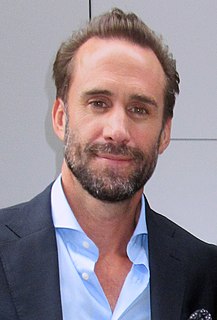A Quote by Christopher Vogler
A myth... is a metaphor for a mystery beyond human comprehension. It is a comparison that helps us understand, by analogy, some aspect of our mysterious selves. A myth, in this way of thinking, is not an untruth but a way of reaching a profound truth.
Related Quotes
If it is written and read with serious attention, a novel, like a myth or any great work of art, can become an initiation that helps us to make a painful rite of passage from one phase of life, one state of mind, to another. A novel, like a myth, teaches us to see the world differently; it shows us how to look into our own hearts and to see our world from a perspective that goes beyond our own self-interest.
Dream is personalized myth, myth is depersonalized dream; both myth and dream are symbolic in the same general way of the dynamics of the psyche. But in the dream the forms are quirked by the peculiar troubles of the dreamer, whereas in myth the problem and solutions shown are directly valid for all mankind.
Truth alone triumphs, not untruth. Through truth alone lies the way to Devayana (the way to the gods). Those who think that a little sugar - coating of untruth helps the spread of truth are mistaken and will find in the long run that a single drop of poison poisons the whole mass ... The man who is pure, and who dares, does all things.
I was interested first of all in trying to capture this myth that was always changing and to create some sort of a master story, some version of the myth that resonated with me, since I could have taken more or less any detail that I wanted or the opposite and try to put that down on the page in a way that I could express from that outset for myself and for our readers what it was that was so magical about [Buckminster] Fuller's way of putting together the world.
Myth is the practical metabolism of our soulish life, the logic of our obsessions and oversights for which we have no language or code. Myth is the "morality" that the ineffable puts upon us, our unaccountable imperatives, our inexplicably selective clarity and obscurity, the mortal one-sidedness of our talents and wits, the passion and apathy that make such a transient passage through our hapless minds; that weave a pattern of fatality others will see before we do. Myth is distinctively human or sublime higher-order instinct, the "reason" in culture that reason knows not of.
Now the story of Christ is simply a true myth: a myth working on us the same way as the others, but with this tremendous difference that it really happened: and one must be content to accept it in the same way, remembering that it is God’s myth where the others are men’s myths: i.e., the Pagan stories are God expressing Himself through the minds of poets, using such images as He found there, while Christianity is God expressing Himself through what we call 'real things'.
Science fiction, because it ventures into no man's lands, tends to meet some of the requirements posed by Jung in his explorations of archetypes, myth structures and self-understanding. It may be that the primary attraction of science fiction is that it helps us understand what it means to be human.
Myth was regarded as primary; it was concerned with what was thought to be timeless and constant in our existence. Myth looked back to the origins of life, to the foundations of culture, and to the deepest levels of the human mind. Myth was not concerned with practical matters, but with meaning. Unless we find some significance in our lives, we mortal men and women fall very easily into despair. The mythos of a society provided people with a context that made sense of their day-to-day lives; it directed their attention to the eternal and the universal.




































